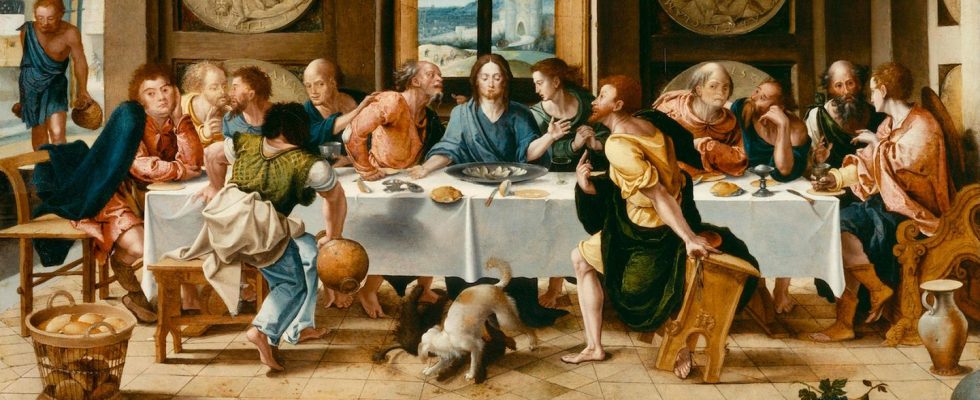Meaning of the holiday
Maundy Thursday: the eve of the crucifixion, the last supper
According to biblical tradition, Jesus’ last supper with his disciples took place on Maundy Thursday
© © Fine Art Images/Heritage Images / Picture Alliance
Maundy Thursday is the fifth day of Holy Week. Christians commemorate the Last Supper on the eve of Jesus’ crucifixion. This makes it one of the most important holidays of the Christian church.
Easter is just around the corner, and between Easter egg hunts and feasting, the original Christian meaning of the holiday is increasingly being lost. This year the focus is on Maundy Thursday because it is to be declared a day of rest for pandemic protection reasons.
Unlike Good Friday and Easter Monday, the fifth day of Holy Week (which begins on Palm Sunday) is not a public holiday, but only a so-called silent day on which there may be certain restrictions. Maundy Thursday commemorates the last supper of Jesus on the eve of the crucifixion.
At Jesus’ last supper with his disciples, he shared bread and wine with them and, with the saying “Do this in memory of me,” initiated one of the cornerstones of the Christian liturgy: the Lord’s Supper or the Eucharist. The holiday is part of the so-called Triduum Sacrum, i.e. the three Easter holidays Maundy Thursday, Good Friday and Holy Saturday.
Maundy Thursday is one of the silent days
As a silent day, Maundy Thursday is banned from dancing in some federal states, as exuberance and fun are considered inappropriate on this holiday. It is a day of sympathy and participation in the Passion of Christ. Traditionally, houses of worship hang blankets and jewelry on Maundy Thursday. On the one hand it is an expression of sadness, on the other hand it is a reminder of the tradition that Jesus’ clothes were torn from his body. Since Jesus is said to have washed the feet of his disciples, some communities perform a similar ritual.
The liturgy on this day also includes the transfer of the Blessed Sacrament. This refers to the hosts that were transformed for the Good Friday service. According to Catholic teaching, by praying the “Tantum Ergo” during the Conviction, the believer can receive a plenary remission of his sins. Traditionally, Maundy Thursday is a day of forgiveness of sins.


